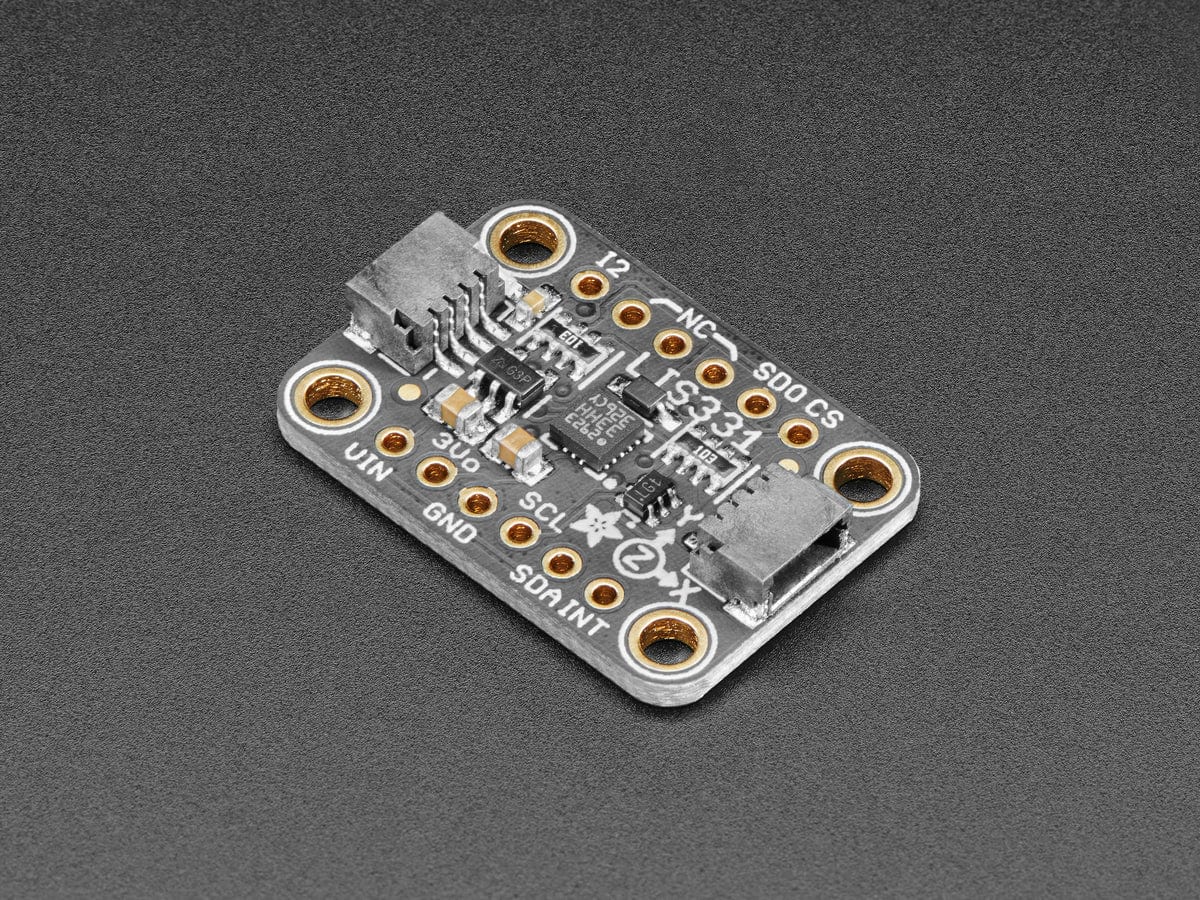
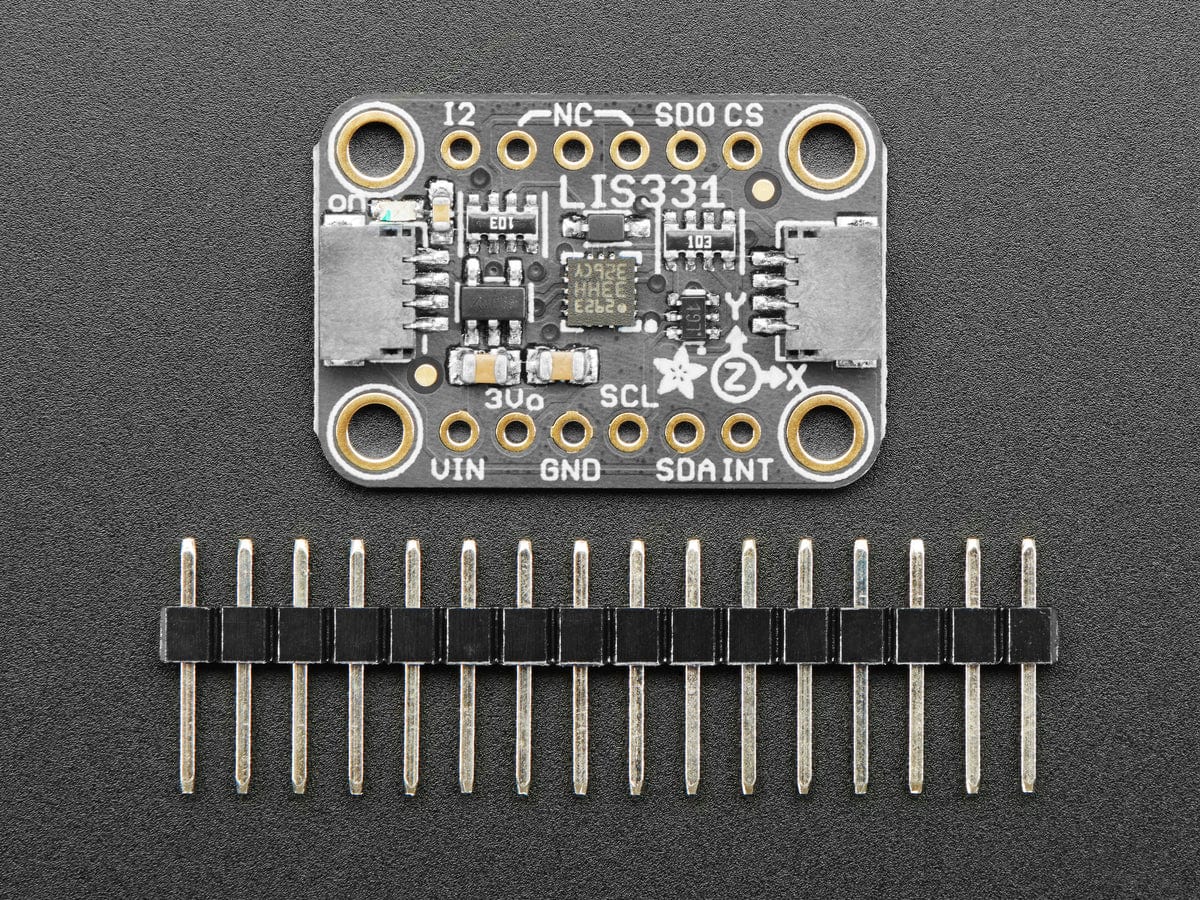
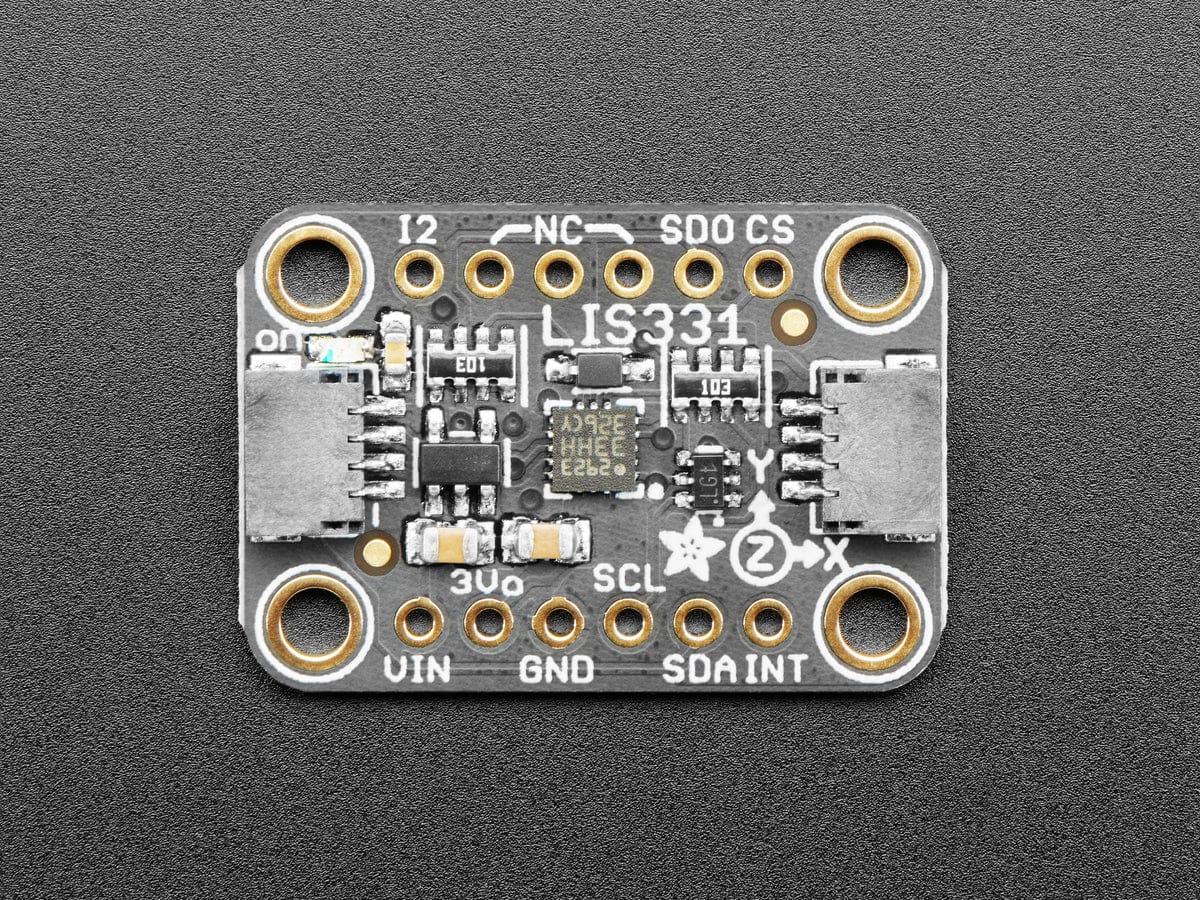
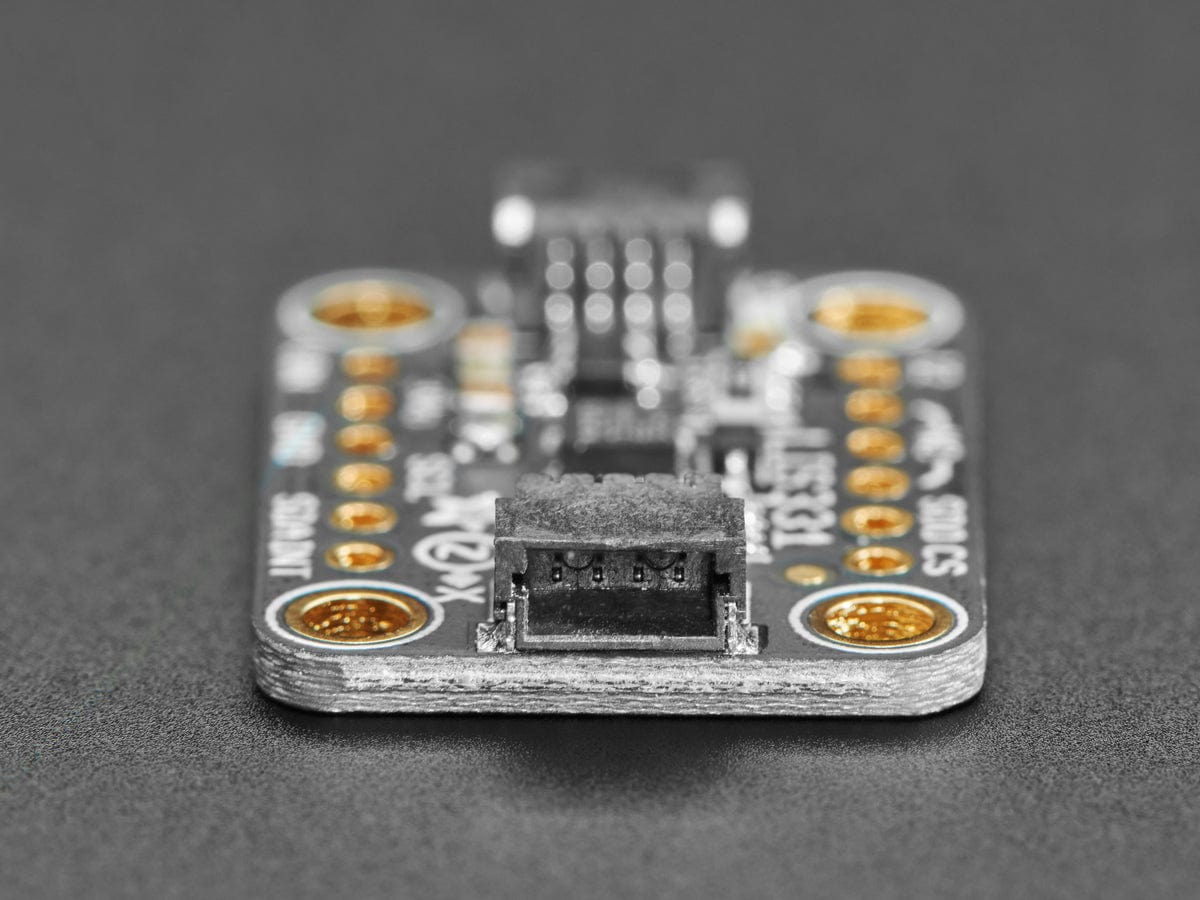
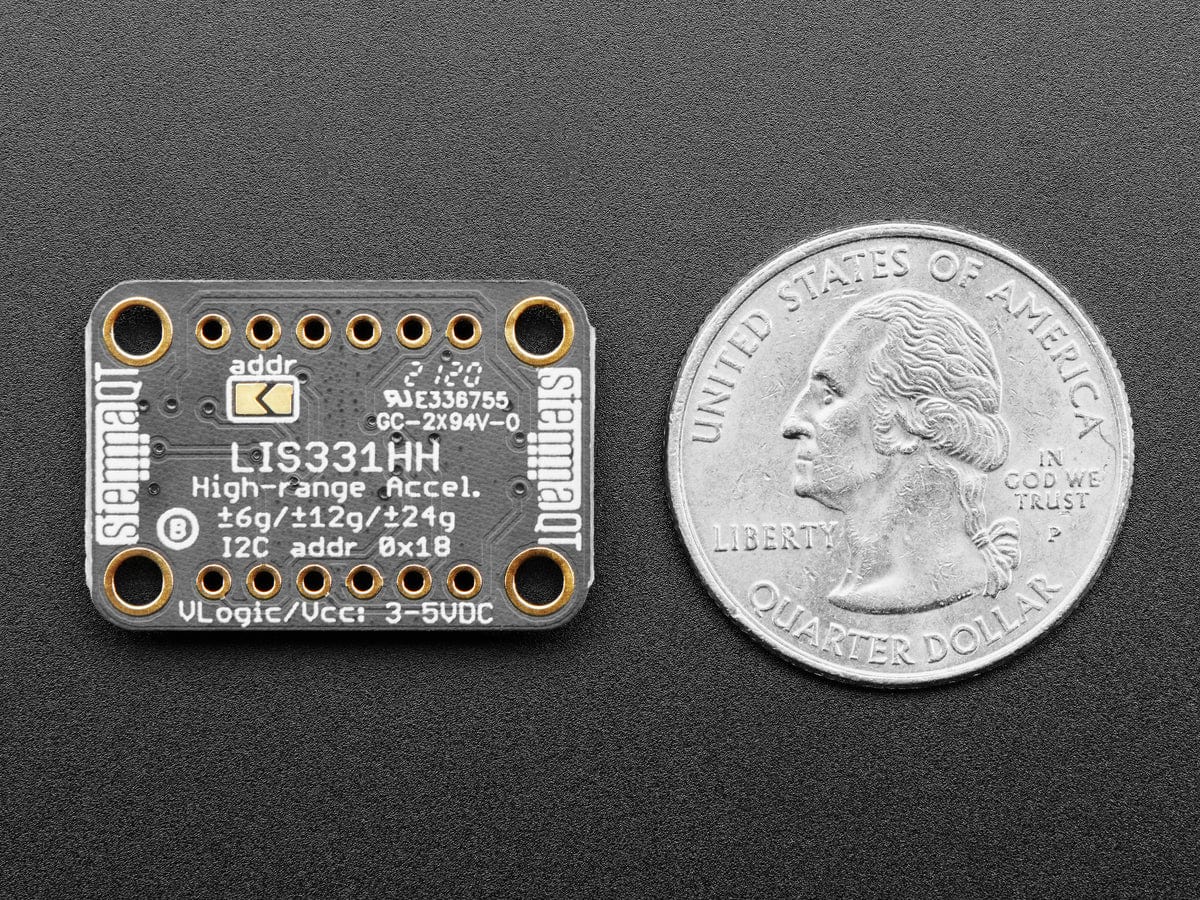
Login / Signup
Cart
Your cart is empty
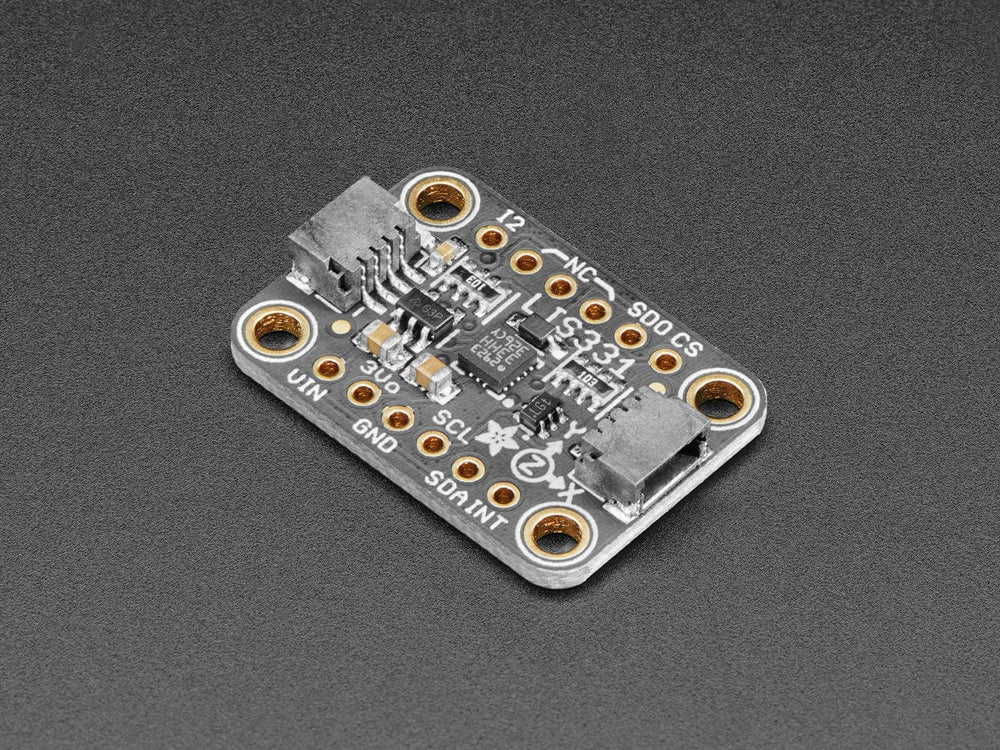
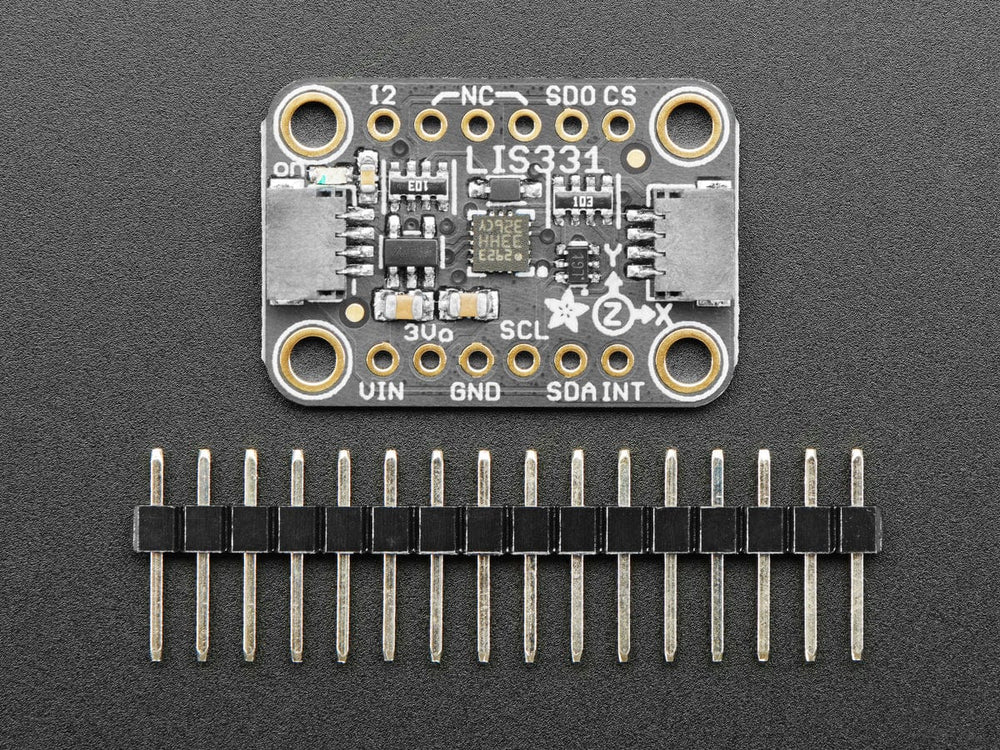
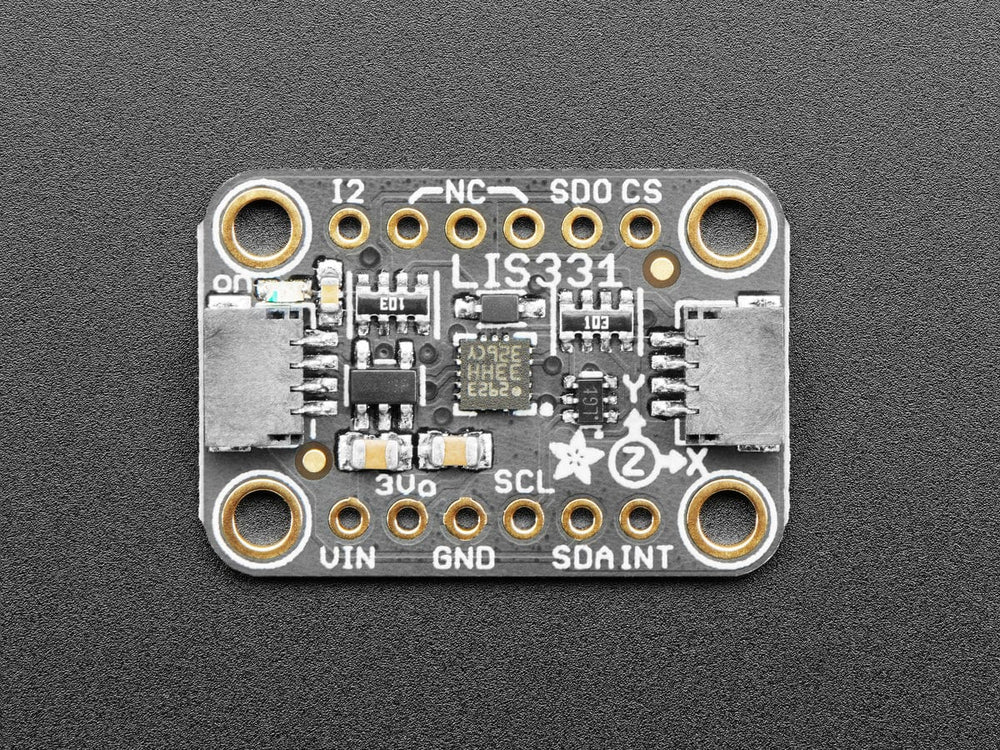
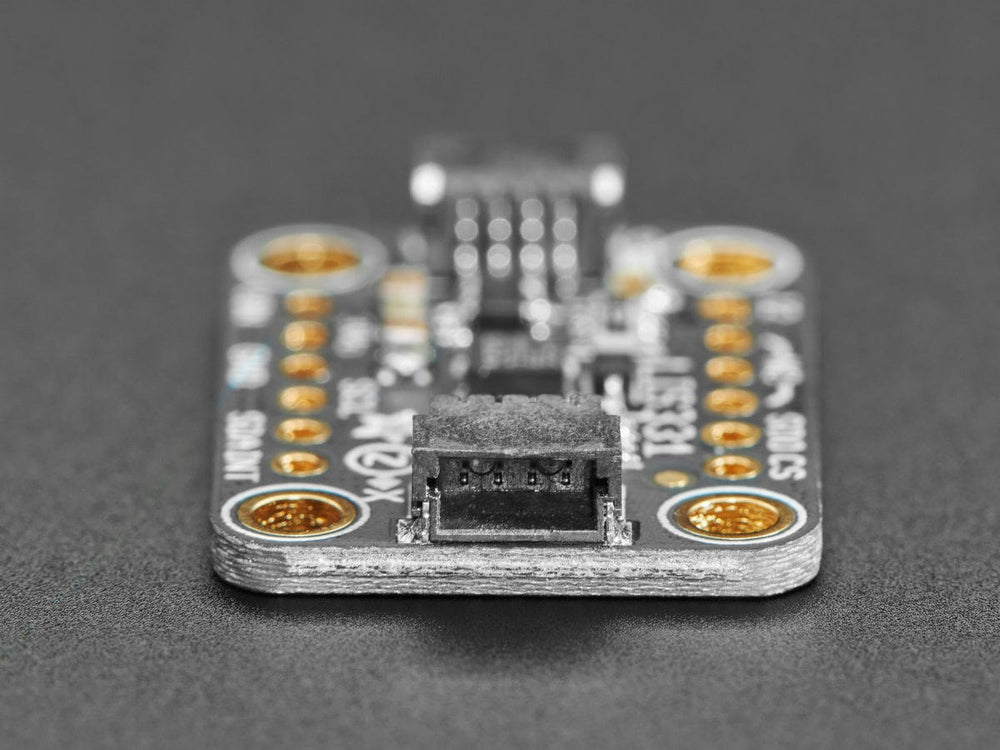
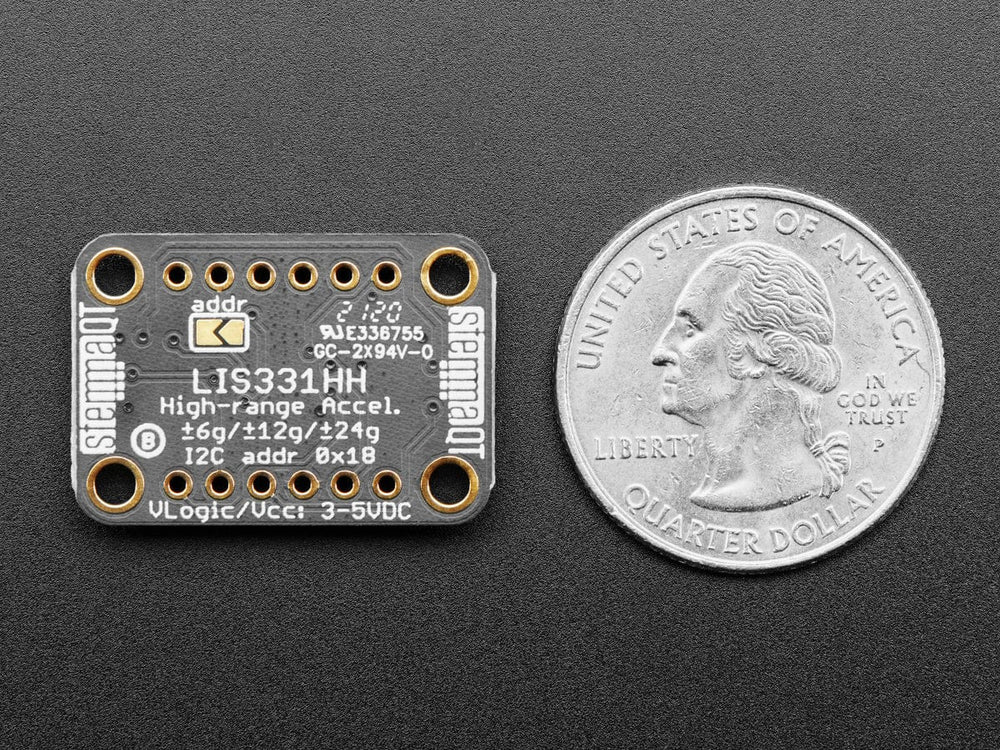
It’s not hard to find an accelerometer that can measure accelerations up to 16g, but if you need an accelerometer that can measure even larger amounts of acceleration, your options narrow.
Enter the LIS331 family of accelerometers from ST, including the LIS331HH. As the model number suggests, the LIS331s are close cousins to the venerable LIS3DH accelerometer that is on every Circuit Playground, from the Circuit Playground Classic to the newest Circuit Playground Bluefruit. The LIS331s however can measure a wider range of acceleration values.
The LIS331HH is capable of measuring ±6g/±12g/±24g on each of its three axes! Compare that with most other accelerometers such as the LIS3DH, which can only handle ±2g/±4g/±8g/16g.
In addition to their substantial measurement capability, the LIS331s have built-in and configurable high-pass and low-pass filters to adjust the readings to your application. Adjustable data rates also allow you to adjust how frequently to take measurements depending on your power budget, and SPI and I2C interfaces give them flexibility to allow them to be used in a range of applications.
The breakout for the LIS331 takes one of these little dynamos and puts it on a custom made PCB in the STEMMA QT form factor, making them easy to interface with. The STEMMA QT connectors on either side are compatible with the SparkFun Qwiic I2C connectors. This allows you to make solderless connections between your development board and the LIS331s or to chain them with a wide range of other sensors and accessories using a compatible cable. We’ve of course broken out all the pins to standard headers and added a voltage regulator and level shifting so allow you to use it with either 3.3V or 5V systems such as the Raspberry Pi + Feather series or Arduino Uno respectively.
Fancy as they are, breakouts alone won’t get you far, so we’ve written libraries for CircuitPython and Arduino along with example code to make them simple to use. The documentation for how to use the libraries as well as wiring diagrams on the following pages will show you how to use them to get you started.
LIS331 Technical Specs
Breakout Specs:







